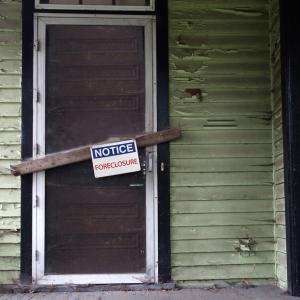Can I Reclaim My Property After Foreclosure in Texas?
What Steps Can I Take to Regain Ownership of My House?

In Texas, if your property has been foreclosed, there are ways you might get it back:
- Right of Redemption: This lets property owners reclaim their property by paying what they owe, plus fees. However, this right is limited and depends on the type of foreclosure.
- Foreclosure Process: Knowing the process in Texas is key. It includes notices, auctions, and possible eviction. Acting before the foreclosure sale can allow you to reinstate your mortgage.
- Mortgage Reinstatement: In Texas, you can stop foreclosure by reinstating your mortgage. This means paying all overdue amounts and costs to keep the loan current before the sale.
Talking to a legal expert or financial advisor familiar with Texas laws can help you find the best way to redeem your property from foreclosure in Texas.
Are There Legal Remedies Available for Surplus Funds Collection?
After a foreclosure sale, extra money might be left over once debts are paid.
- Surplus Funds: Property owners can claim surplus funds from a foreclosure sale. These happen when the sale price is more than the owed debts.
- Foreclosure Sale Process: Understanding the auction process in Texas is important. This knowledge helps determine whether surplus funds are available.
- Real Estate Transactions: A lawyer experienced in real estate can help with the paperwork needed to claim your surplus funds.
If you think you’re owed these funds, act quickly. In Texas, there may be deadlines for claiming foreclosure surplus funds.
What Is the Role of Deficiency Judgments in Property Reclamation?
Deficiency judgments may impact returning your property or handling leftover debt after foreclosure.
- Deficiency Judgment occurs when the sale doesn’t cover the total mortgage debt, and the lender seeks the remaining balance.
- Legal Challenges: Fighting a deficiency judgment can be tough. If you face this in Texas, getting legal advice is smart. It can help explore options like debt relief.
- Reverse Foreclosure in Texas: Sometimes, negotiating with the lender for a reverse foreclosure might help manage outstanding debts.
Understanding deficiency judgments is important for anyone looking to reclaim their property or achieve financial stability after foreclosure.
How Does the Foreclosure Process in Texas Affect Homeowners?
What Are the Phases of Foreclosure in Texas?

The foreclosure process in Texas has several steps, mainly involving non-judicial foreclosures. Here’s a simple breakdown:
- Missed Payments: Everything starts when homeowners miss mortgage payments. Lenders send notices to remind them about their dues.
- Notice of Default: After missing a few payments, the lender sends a Notice of Default and Intent to Accelerate, letting homeowners know they are behind.
- Notice of Sale: If the issue isn’t fixed, a Notice of Sale is filed. This is important for non-judicial foreclosures, as it sets the date, time, and place for the foreclosure sale.
- Foreclosure Sale: The property is sold at a public auction. Real estate investors often show up to buy properties at lower prices.
- Post-Sale: If no one buys the property, it returns to the lender, who can put it on the real estate market.
Knowing these steps helps homeowners understand what might happen if they can’t keep up with mortgage payments.
How Do Judicial Foreclosures Differ from Non-Judicial Ones in Texas?
In Texas, there are two types of foreclosures: judicial and non-judicial. Here’s how they differ:
- Judicial Foreclosure: This type requires court action. Lenders sue the borrower. It takes time and costs more, so it’s less common in Texas.
- Non-Judicial Foreclosure: This is the usual method in Texas. It doesn’t involve the court, usually goes faster, and costs less than judicial foreclosures. That’s why lenders prefer it.
Both types affect the time homeowners have to find a solution. Borrowers should talk to an attorney to determine which process applies to them and what options they might have.
Can Homeowners Receive Assistance During Foreclosure?
Yes, in Texas, homeowners facing foreclosure can get help through different programs:
- Foreclosure Assistance Programs: These offer help and support to homeowners. They might assist in renegotiating loan terms or finding other ways to avoid foreclosure.
- Legal Aid: Some services provide free or low-cost legal help to guide homeowners on their rights and options. Lawyers with real estate and foreclosure experience can be very helpful.
- Mortgage Forbearance: Some lenders might allow temporary relief from payments, giving homeowners time to fix their financial issues.
- Relief Options: These include refinancing, repayment plans, or deed-in-lieu arrangements.
Homeowners should contact housing counselors, like Southern Hills Home Buyers, to explore these options. Speaking with an experienced attorney is also a good idea to handle foreclosure situations and find the best relief options.
Alternatives to Recovering a House After Foreclosure
What Are the Possibilities for Buying Back a Foreclosed Home?

Buying back a foreclosed home is a way for previous homeowners to get their property back. Here’s how it works:
- Buyback: After the foreclosure sale, the original homeowner might be able to buy the house again by negotiating with the lender. This depends on state laws and the lender’s own rules.
- Real Estate Auction: Sometimes, if no other bidders at the auction or state laws allow it, the home may be available for buyback.
- Lender Negotiations: The homeowner can try to discuss ways with the lender to repurchase the home after the sale, especially if a deficiency judgment is issued.
Understanding these options can help former homeowners explore ways to reclaim their homes after foreclosure.
How Can Leasing or Renting Options Work for Former Homeowners?
For those facing foreclosure, leasing or renting back the property can offer solutions:
- Lease or Rent-Back Agreement: In some situations, the new owner may let former owners stay as tenants. This requires agreeing on landlord-tenant terms after foreclosure.
- Agreement Terms: It’s important to outline terms like rental duration and monthly payments. These details can help avoid eviction.
- Leasing Options: Look into different leasing options that match your financial situation. Some agreements may have flexible terms to help former homeowners transition from owning to renting.
These choices can provide stability during a difficult time.
Can Mortgage Forbearance or Relief Measures Help?
Mortgage forbearance and relief measures can prevent foreclosure or aid recovery:
- Mortgage Forbearance: This option temporarily pauses or lowers mortgage payments, giving the homeowner time to fix their finances without losing the home.
- Relief Options: Some relief programs, like loan modifications, make mortgage terms more manageable over time.
- Financial Assistance: Seek out financial help programs meant for struggling homeowners, including state or federal aid.
- Lender Policies: Talk to your lender about policies that could stop foreclosure or offer ways to keep your home.
Knowing these options can give homeowners tools to handle the foreclosure process effectively.
Southern Hills Home Buyers is dedicated to assisting you in exploring every possibility of keeping or regaining your home. If you need more help, please contact us for personalized advice.
Legal and Financial Considerations in Texas Foreclosures
What Legal Steps Should Homeowners Take Post-Foreclosure?
After a foreclosure, homeowners in Texas must know their legal rights. Working with a good lawyer is important to understand the Texas foreclosure laws. Here are some steps to think about:
- Consultation: Talk to a lawyer who knows Texas property rights to get advice on your case.
- Document Review: Review all foreclosure papers to check if they are correct and legal.
- Know Your Rights: Learn about Texas law on foreclosure and who can own the property.
- Legal Actions: Sometimes, you might have options to fight foreclosure legally.
Are There Financial Implications of Losing a Home to Foreclosure?

Losing a home to foreclosure has serious financial effects. Knowing these can help plan:
- Credit Scores: A foreclosure can hurt your credit scores, making it harder to get loans later.
- Future Borrowing: Lenders may see foreclosure as risky, which can change loan terms.
- Financial Impact: You lose your property right away, which can affect your financial stability for a long time.
- Debt Relief: Look into debt relief options to manage what you owe.
- Long-term Strategies: Plan to recover financially by rebuilding your credit and getting financial advice.
How Do Bankruptcy Options Interact with Foreclosure Processes?
Bankruptcy might help in foreclosure situations. Knowing how different bankruptcy types work with foreclosure in Texas is important:
- Chapter 7 Bankruptcy: This can stop foreclosure for a while but usually results in selling assets.
- Chapter 13 Bankruptcy: Offers a repayment plan so you can catch up on mortgage payments and keep your home.
- Real Estate Context: Understand how filing for bankruptcy affects your property and dealings with lenders.
- Foreclosure Halt: Filing for bankruptcy can pause foreclosure, giving time to discuss with lenders.
- Court Involvement: The court manages the bankruptcy process, ensuring everything follows the law.
Understanding these legal and financial points is crucial for Texans facing foreclosure. Southern Hills Home Buyers suggests seeking professional advice specific to each person’s situation.
Preparing for Life After Foreclosure in Texas
What Are the Immediate Steps Following a Foreclosure?
After going through a foreclosure in Texas, you must know what to do next. Check if you’re staying as a tenant or if you were the property owner. If you still live on the property after foreclosure, you might face eviction, called post-foreclosure eviction in Texas. Understand the rules about getting your property back because they differ from state to state.
Also, look at how foreclosure affects your credit. The foreclosure sale can lower your credit score and stay on your credit report for years. By taking these steps, you can start recovering after a foreclosure.
How Can Homeowners Plan for Financial Stability?
Building financial stability after a foreclosure takes careful planning. Start by reviewing your finances and making a budget for your new situation. List all your income and necessary expenses. You might want to talk to debt management experts like DebtStoppers to find good long-term financial strategies.
Check your credit report often to see how you’re doing and fix any mistakes. Improving your credit score will help you financially recover over time. Good financial planning is key to gaining stability after losing a home.
What Pathways Exist for Future Homeownership or Renting?

Looking into future homeownership or renting is a big part of moving on. If you want to buy another house, know it might take a while to qualify for a mortgage after foreclosure. Meanwhile, think about a rent-back agreement if that’s an option. This lets you rent your foreclosed home while you figure out your next steps.
Knowing tenant rights and responsibilities in Texas is important whether you want to buy a new home or rent. Being well-informed will help you smoothly move into your next home. Once your finances and credit score improve, real estate opportunities will come up, helping you confidently buy or rent a new place.
Are you wondering how to sell a house in Texas? We’re here to help! Whether you’re in Dallas, Houston, Austin, Fort Worth, El Paso, or nearby areas, the process can feel overwhelming. But don’t worry, we’ve got you covered.
At Southern Hills Home Buyers, we buy houses throughout Texas, making the selling process simple and stress-free for homeowners like you. No matter your situation or the condition of your home, we can provide a solution that works for you.
Read on to learn more about selling your house in Texas. If you need personalized assistance or want to sell your house quickly, don’t hesitate to Contact Us at (214) 225-3042. We’re ready to help you every step of the way!
Additional Texas Foreclosure Resources
- Can You Stop A Foreclosure Once It Starts In Texas
- Can I Get My House Back After Foreclosure In Texas
- Can Someone Take Over My Mortgage In Texas
- Can You Sell a House in Forebearance Texas?
- Can An HOA Foreclose On A House in Texas
- How Long Does a Foreclosure Take in Texas
- How To Sell A House In Foreclosure In Texas
FAQs:
What are my options to get my house back after foreclosure in Texas?
If your home has been foreclosed in Texas, you might have the right of redemption. This means you could repurchase your property within a specific time. It’s important to know the costs and steps involved. Consulting a real estate attorney could help explore your options.
Can I buy my home back after a tax foreclosure sale?
Yes, sometimes you can buy your home back after a tax foreclosure by paying the back taxes, penalties, and other costs. This process is called redeeming the property. You must act fast and gather all the necessary details to use this option.
Is it possible to collect surplus funds after a foreclosure sale?
If your home sells for more than you owed on your mortgage during a foreclosure auction, you might get the extra money, called surplus funds. The process to claim these funds varies, so it’s wise to research or get legal advice to make sure you receive what’s yours.
How do property tax liens affect foreclosure in Texas?
A property tax lien can lead to foreclosure if you don’t pay it. It’s crucial to handle unpaid property taxes to prevent losing your home. Understanding tax liens and getting professional help can guide you through these situations.
Can former homeowners find assistance after foreclosure?
Yes, former homeowners can get help through legal aid, counseling, and community programs. These resources provide advice on your rights, assist in finding new housing, or help with financial planning for the future.
What are the risks of buying a foreclosed home in Texas?
Buying a foreclosed home can save money, but risks include hidden costs, unclear property titles, and needed repairs. Be sure to inspect thoroughly, possibly consult an expert, and understand the purchase terms before buying.
Can a homeowner refinance to avoid foreclosure?
Refinancing might be an option to prevent foreclosure if the homeowner qualifies for a better loan to manage debt. Act early, evaluate the situation, and talk to a financial advisor to see if refinancing is a good solution.
What should I know about non-judicial foreclosure procedures in Texas?
Non-judicial foreclosure in Texas means selling the property without court proceedings, using the power-of-sale clause in a mortgage. Homeowners should know the timeline and seek legal advice to explore their rights and ways to stop the process if necessary.
Key Insights
- In Texas, you might be able to reclaim your home after foreclosure by buying it back or using the right of redemption.
- Understanding foreclosure laws is crucial to recover surplus funds after a foreclosure sale.
- Sometimes, you can collect extra money after your house sells at auction.
- Property taxes, tax liens, and judgments are important in foreclosure situations.
- We offer help to navigate the process of reclaiming and buying back your home after foreclosure.
- To protect your rights, it’s important to explore all legal options, including non-judicial foreclosure and litigation.
- Researching your credit report and understanding financial responsibilities are key steps in returning your home.
- Consulting with attorneys who know about foreclosure and real estate law can guide you.
- Knowing your rights as a former homeowner can help you try to redeem a foreclosed property.
Get Cash For Your Texas House Today
We buy houses in Texas without the hassle and red tape. Get your no-obligation cash offer for your home and just be done. Selling in as-is condition has never been easier.


